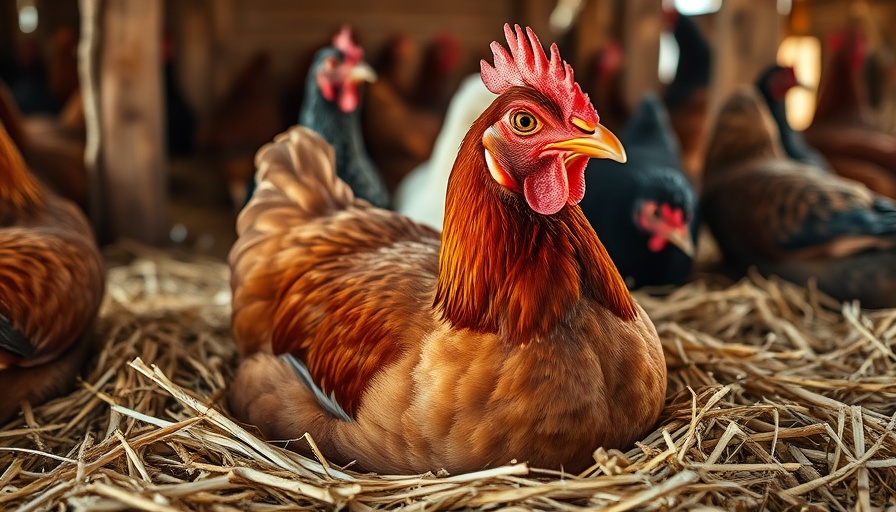
The Hidden Threat: Understanding Sticktight Fleas in Chickens
As a poultry manager or supplier, you're undoubtedly aware of the many challenges that come with maintaining the health and well-being of your flock. Sticktight fleas, scientifically known as Echidnophaga gallinacea, have emerged as a significant concern for poultry professionals. Unlike traditional fleas that jump from host to host, sticktight fleas attach themselves permanently, causing discomfort and health issues for your birds.
Unveiling the Behavior of Sticktight Fleas
These deceptively small parasites thrive in environments where poultry reside. Their favorite feeding areas include the wattles and combs of chickens. When you notice lethargy or unusual behavior in your birds, it's essential to consider the possibility of sticktight fleas. Their attachment can lead not only to physical irritation but also to underlying health complications in your flock.
Effective Management Strategies
Managing a sticktight flea infestation requires vigilance and action. Alongside implementing regular health checks, here are practical tips:
- Regular Inspections: Ensure you frequently inspect your birds, focusing on areas at risk for flea attachment, like the wattles and around the eyes.
- Maintain Clean Environments: Regularly clean chicken coops and surrounding areas to minimize flea populations.
- Consult Your Veterinarian: Should you discover an infestation, seek veterinary advice for appropriate treatment.
Raising Awareness and Preparedness
The poultry industry thrives on awareness, and understanding threats like sticktight fleas can significantly improve overall flock health. Adopting proactive strategies not only protects your animals but enhances productivity and profitability as well. As professionals in this industry, fostering a culture of prevention can lead to sustainable practices that benefit the entire community.
In conclusion, tackling sticktight fleas in your flock necessitates a combination of vigilance and effective management strategies. By ensuring your team is educated and aware of this parasite, you enhances the welfare of your chickens, ultimately translating into better business outcomes. Remember, a healthy flock is the backbone of your operations.
 Add Row
Add Row  Add Element
Add Element 



 Add Row
Add Row  Add
Add 
Write A Comment